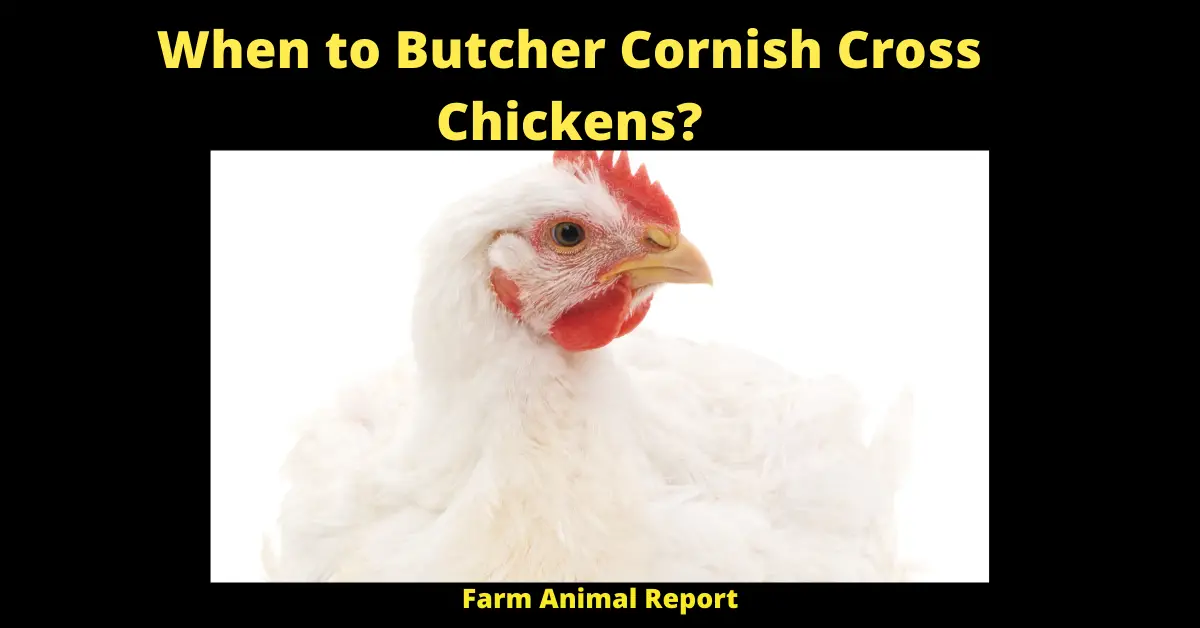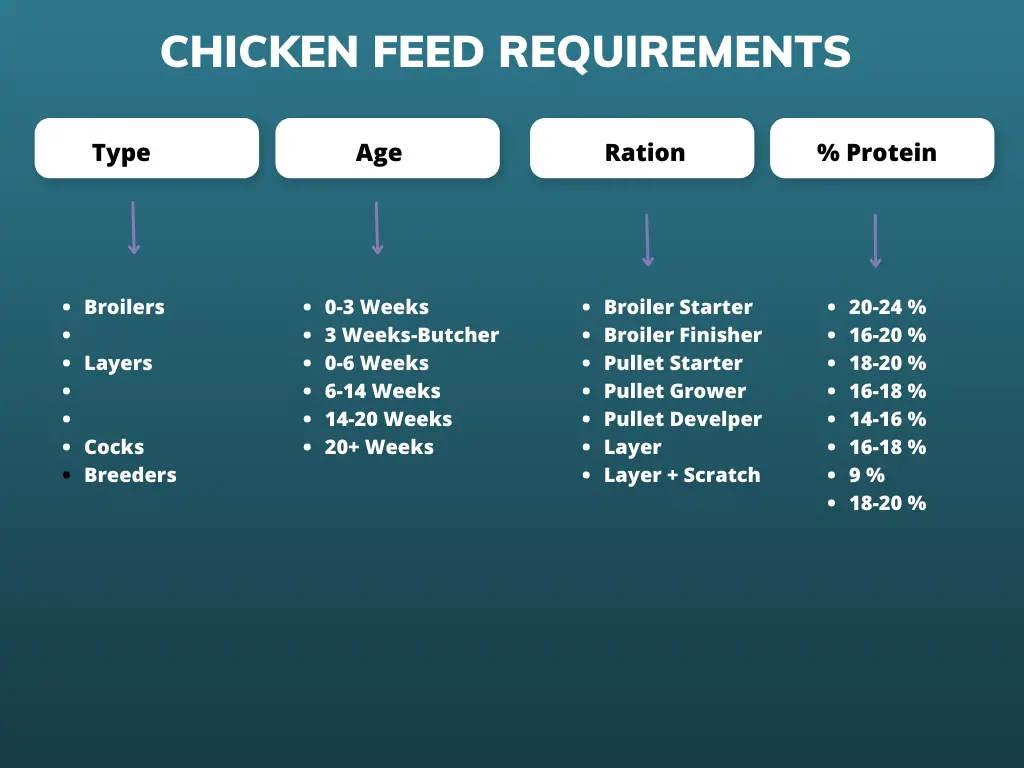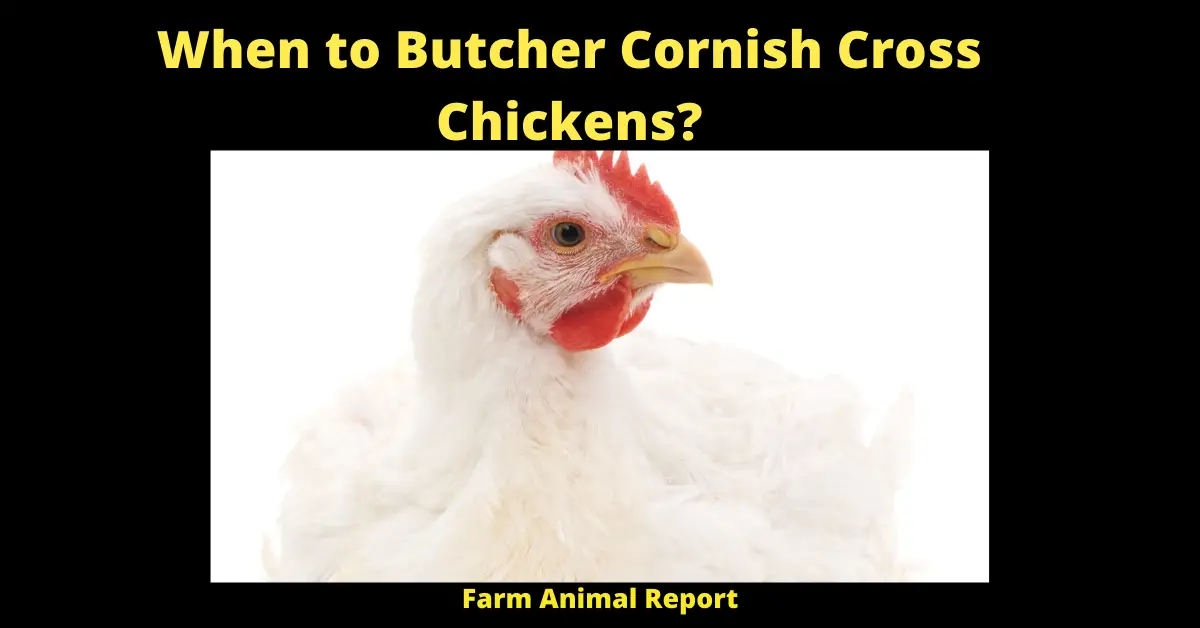The best time to butcher Cornish Cross Broilers is at 6 weeks old, approx 5.5lbs. They grow so fast going beyond that will result in Health Problems.
How Long do Cornish Cross Chickens Live? Cornish Cross Growth Chart: Chickens Life
When it comes time to butcher Cornish Cross chickens, there are a few things you need to take into consideration. The first thing is deciding when the right time is to slaughter them. This isn’t always an easy decision, as there are pros and cons to both early and late butchering. In this blog post, we’ll discuss the different factors you need to consider when making your decision! jump to 12 Ways to Make Money by Chicken Farming **CHARTS**
Why are Cornish Cross chickens a Hybrid Breed of Chicken, so far Popular?
Cornish Cross are a breed of chickens that trace their roots to the Crossing of Cornish Chickens and Plymouth White Chickens. They are prevalent because they grow very large and plump, making them great for meat production. Cornish Cross chickens typically reach slaughter weight at around six weeks old. When to Butcher Cornish Cross Chickens? How Long do Cornish Cross Chickens Live?

At What Age do you Butcher Cornish Cross Broilers?
Roosters– 28 days
Hens– 28 days
Broilers– 42 days
See Amazons Resources on The Many Breeds of Chickens and Their Characteristics
At What Weight do you Butcher Cornish Cross Chickens? ( Raising Cornish Cross)
Roosters– between four and five pounds
Hens– between four and five pounds
Broilers– between six and eight pounds
What is the Cornish Cross Lifecycle? (Raise Cornish Cross)
The Cornish Cross Chickens’ lifecycle begins when they are born. Cornish Cross chickens grow very rapidly, reaching maturity at around six weeks old. At this point, they are ready for slaughter.
- Eggs Gestation – 21 days
- Hatching – day 22
- Brooder – six weeks old
- Outside – day 42
- Broiler – day 49
- Hen Sexual Maturity– 16 to 18 weeks
- Rooster Sexual Maturity– 20 to 22 weeks
How long do Cornish Cross Chickens Live?
The lifespan of a Cornish Cross chicken is about 40-60 days. However, most commercial operations butcher them much sooner than that, usually at around 35-42 days old. This is because they grow so rapidly that their legs and heart can’t keep up, and they often die from heart attacks or organ failure.
While it may seem cruel to butcher them so young, it’s actually more humane than letting them live out their full lifespan. If they were allowed to live longer, they would suffer from painful health problems and a shortened life expectancy.
Their short life expectancy is because they’ve been bred to grow very quickly. In the wild, chickens can live up to 20 years, but Cornish Crosses only live for a few months because they’ve been specifically bred to grow large enough to be butchered in a short amount of time.
While their lifespan is shorter than other chicken breeds, Cornish Crosses can still provide you with plenty of delicious meat. If you want to butcher your own chickens, we recommend doing it at around 35-42 days old.
At this age, they’ll be big enough to provide you with a good amount of meat, but they won’t have started experiencing any health problems yet.
How many Eggs will a Cornish Cross Hen Yield per year? (Cornish Cross Chicks)
A healthy Cornish Cross hen can lay between 200 and 300 eggs per year. However, the average is closer to 250 eggs. A hen will begin laying eggs at around 18 weeks old.
What is the Difference Between a Cornish Cross Chicken and a Regular Chicken?
The main difference between a Cornish Cross chicken and a regular chicken is their size. Cornish Cross chickens are much larger, reaching maturity at six weeks old. They also have white feathers, whereas regular chickens can come in a variety of colors.

When it comes time to butcher Cornish Cross chickens, there are a few things you need to take into consideration. The first thing is deciding when the right time is to slaughter them. This isn’t always an easy decision, as there are pros and cons to both early and late butchering. In this blog post, we’ll discuss the different factors you need to consider when making your decision!
One of the main factors you need to consider is the weight of the chicken. Cornish Cross chickens typically reach slaughter weight at around six weeks old. If you butcher them any earlier, they won’t be as heavy, and you won’t get as much meat.
However, if you wait too long, the chickens will start to put on fat, which can affect the taste of the meat. Another factor to consider is whether or not you want male or female chickens.
Male chickens tend to be larger and have more breast meat, while female chickens are smaller with more dark meat. If you’re looking for a specific type of meat, this is something to keep in mind.
Finally, you need to decide if you want to keep the chickens for their eggs or not. If you do, then you’ll need to wait until they reach sexual maturity, which is around 16-18 weeks for hens and 20-22 weeks for roosters.
What is the Feeding Schedule for Cornish Crosses?
Once hatched and until they are fully feathered at about six weeks of age,
- Starter Feed – Cornish Cross chicks should be fed a starter feed that is higher in protein.
- Grower Feed – After six weeks, they can be switched to a grower feed with slightly less protein.
- Finisher Feed – Once they reach butchering age, you can switch them to a finisher feed that is lower in protein to help fatten them up.
- Supplements – You can also start feeding them corn or other grains as a treat once they are a few weeks old. Just make sure not to overfeed them, as this can lead to health problems.
We hope this blog post has helped you decide when the right time is to butcher your Cornish Cross chickens!

What is the Cornish Cross Growth Weight Chart?
- 1 Week – .25 lb
- 2 Weeks – .75 lb
- 3 Weeks – 1.5 lbs
- 4 Weeks – 2.5 lbs
- 5 Weeks – 3.5 lbs
- 6 Weeks – 5.5 lbs
Final Thoughts – When to Butcher Cornish Cross Chickens?
In conclusion, the best time to butcher your Cornish Cross chickens is around 35-42 days old. This is when they will be big enough to provide you with a good amount of meat, but they won’t have started experiencing any health problems yet. If you want to keep the chickens for their eggs, you’ll need to wait until they reach sexual maturity, which is around 16-18 weeks for hens and 20-22 weeks for roosters.





